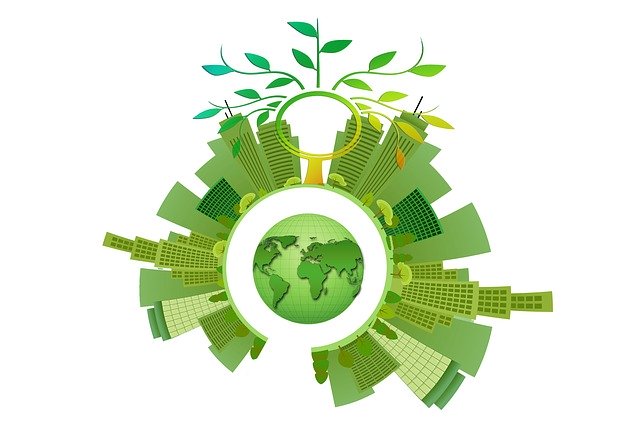
Sustainability is Still Important... Whether You’re Working From Home or Not
Working from home is here to stay, for those whose jobs allow for it. Many of our clients will be back to work on their warehouse floor, some in offices, and some at home. No matter where you are, World Environment Day (on June 5) is a reminder that staying green is still important!
Here are some ways that you can remain sustainable, no matter where your workspace happens to be.
Avoid plastic and one-use materials
When you’re working remotely, this is easy because most people have a dishwasher close at hand. You can eat your breakfast on regular plates with your normal cutlery instead of eating off disposable ones. You have mugs for coffee and glasses for staying hydrated.
When you’re at the office or warehouse, it may be a bit trickier but If there is a dishwasher, consider bringing your supplies from home. But if you have to use disposable food and beverage items, try to ensure that they’re made of recycled materials and/or are biodegradable.
At the very least bring your own coffee (or tea) mugs from home plus something to keep hydrated with. There are plenty of reusable water bottles with cool designs that aren’t made out of plastic and are BPA free. Water in plastic bottles is terrible for the environment and unnecessary to boot. If you don’t like your tap water at home, you can install a filter to improve the taste.
Reuse what you have
Rather than going out and buying something new, which isn’t great for the wallet, consider whether you’ve already got something that can be adapted to a new situation. For example, maybe you’ve got a folding table where the work surface is too low for your employees. You can repurpose them pretty easily for standing work at the warehouse or office.
At home (or in the office) and need a sit/stand setup? If you’ve got a folding table, you can make that conversion so you’re not sitting for too long. As you know, sitting all day is bad for your health!
Can it be repaired?
We’re so used to the throwaway culture that sometimes we don’t even stop to think if an item can be repaired instead of tossing it out in the garbage and buying a new one.
There’s usually a cost-benefit analysis with repairs to make sure it’s the right thing to do. If you have something that’s genuinely on its last legs, it may be too expensive to repair relative to the savings you’ll be able to squeeze out of it.
Some of today’s materials are designed to be obsolete in a few years, and repairs aren’t usually worth it for these items either. If you’ve already been using your laptop for a few years, spending the money to repair it probably is not going to give you any kind of decent return on investment.
Recycle
Which naturally brings us to recycling. Not everything goes in the trash. Especially e-waste like obsolete laptops, old smartphones, printer ink, batteries and the like. They all need to be recycled and usually there are special e-waste sites set up for these items.
Any cans, glass, and whatever cardboard or paper is allowable in your community can go in the recycling bin as well.
Save paper
Another great way to increase sustainability is to reduce the amount of paper that’s used at home, in your office, or on the warehouse floor. Go paperless wherever possible. There are plenty of secure online storage solutions that will keep your information safe and digital.
When you do need to print, use recycled paper and set the printer to print double-sided when you’re printing more than one page.
How are you staying sustainable at work? Let us know in the comments!

